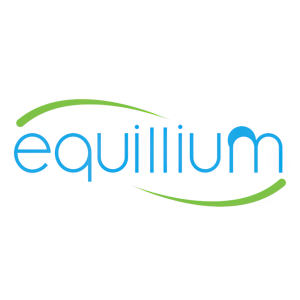Equillium Announces Publication of Data in the Journal of Clinical Investigation Highlighting the Importance of the CD6-ALCAM Pathway in the Pathogenesis of Lupus Nephritis
First data to demonstrate the contribution of CD6-ALCAM and T-cells to the pathogenesis of lupus nephritis
Largest, most comprehensive cohort of lupus nephritis patients analyzed to date supports soluble ALCAM as a biomarker for disease activity
“More targeted therapies are urgently needed to effectively treat LN, as well as other T cell mediated diseases,” said
Building on work first reported by Professor
“Pathogenic T cells are thought to be instrumental in the development and progression of both SLE and LN and this data strengthens our belief that blocking the CD6-ALCAM pathway could prove to be an ideal approach for new therapeutic intervention in these diseases,” said
Beatrice Goilav, M.D., associate professor of pediatrics,
About Lupus and Lupus Nephritis
Lupus or systemic lupus erythematosus (SLE) is a chronic, complex autoimmune disease that affects hundreds of thousands of people worldwide. In lupus, the immune system, which is designed to protect against infection, creates antibodies that can attack any part of the body including the kidneys, brain, heart, lungs, blood, skin, and joints. Kidney damage due to attacks by immune cells (lupus nephritis) is one of the most common complications of lupus, affecting as many as half of adults with lupus. When the kidneys become inflamed, they can’t effectively get rid of waste products and other toxins from the body. This may lead to blood in the urine, protein in the urine, high blood pressure, impaired kidney function or even kidney failure.
About Itolizumab
Itolizumab is a clinical-stage, first-in-class anti-CD6 monoclonal antibody that selectively targets the CD6-ALCAM pathway. This pathway plays a central role in modulating the activity and trafficking of T cells that drive a number of immuno-inflammatory diseases.
About
For more information, visit www.equilliumbio.com.
Forward Looking Statements
Statements contained in this press release regarding matters that are not historical facts are "forward-looking statements" within the meaning of the Private Securities Litigation Reform Act of 1995. Forward-looking statements may be identified by the use of words such as "anticipate", "believe", “could”, “continue”, "expect", "estimate", “may”, "plan", "outlook", “future” and "project" and other similar expressions that predict or indicate future events or trends or that are not statements of historical matters. Because such statements are subject to risks and uncertainties, many of which are outside of the Company’s control, actual results may differ materially from those expressed or implied by such forward-looking statements. Such statements include, but are not limited to statements regarding the potential benefit of treating patients with aGVHD, uncontrolled asthma, or lupus/lupus nephritis with itolizumab, Equillium’s plans and expected timing for developing itolizumab including the expected timing of initiating, completing and announcing further results from the EQUATE, EQUIP, and EQUALISE studies, the potential for any of Equillium’s ongoing or planned clinical studies to show safety or efficacy, statements regarding the impact of new leadership team members, Equillium’s anticipated timing of regulatory review and feedback, Equillium’s cash runway, and Equillium’s plans and expected timing for developing itolizumab and potential benefits of itolizumab. Risks that contribute to the uncertain nature of the forward-looking statements include: uncertainties related to the abilities of the leadership team to perform as expected; Equillium’s ability to execute its plans and strategies; risks related to performing clinical studies; the risk that interim results of a clinical study do not necessarily predict final results and that one or more of the clinical outcomes may materially change as patient enrollment continues, following more comprehensive reviews of the data, and as more patient data become available; potential delays in the commencement, enrollment and completion of clinical studies and the reporting of data therefrom; the risk that studies will not be completed as planned; Equillium’s plans and product development, including the initiation and completion of clinical studies and the reporting of data therefrom; whether the results from clinical studies will validate and support the safety and efficacy of itolizumab; changes in the competitive landscape; uncertainties related to Equillium’s capital requirements; and having to use cash in ways or on timing other than expected and the impact of market volatility on cash reserves. These and other risks and uncertainties are described more fully under the caption "Risk Factors" and elsewhere in
View source version on businesswire.com: https://www.businesswire.com/news/home/20220104005388/en/
Investor Contact
Vice President, Investor Relations & Corporate Communications
619-302-4431
ir@equilliumbio.com
Media Contacts
Aljanae Reynolds
areynolds@wheelhouselsa.com
Source:






